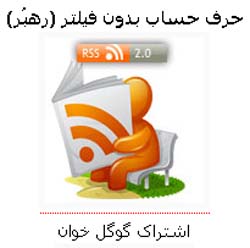 His message is one of hope and reform, youth and women find him inspiring, and he could pull off a narrow victory – these are not the only characteristics Iran‘s leading reformist presidential candidate, Mir Hussein Mousav, shares with U.S. president, Barack Obama. He has also grasped the importance of the internet for his campaign.
His message is one of hope and reform, youth and women find him inspiring, and he could pull off a narrow victory – these are not the only characteristics Iran‘s leading reformist presidential candidate, Mir Hussein Mousav, shares with U.S. president, Barack Obama. He has also grasped the importance of the internet for his campaign.
“If Obama is a brand, then Iranian presidential candidates are its top consumers,” writes Hamid Tehrani, the Iran Editor for Global Voices Online, a website that features translations and reports from blogs and citizen media.
The record turnout expected for Iran‘s presidential election on Friday is partly due to the sophisticated internet campaigns of all four candidates. Read Wide Angle’s email interview with Tehrani below, and click on the links to see more of his reporting.
What online strategies are the four presidential candidates using in the lead-up to Friday’s election?
Facebook is used by reformist candidates, Mehdi Karoubi and Mir Hussein Mousavi, while President Mahmoud Ahmadinejad’s supporters use YouTube and have published dozens of films. The former head of Iran’s Revolutionary Guard, Mohsen Rezai, uses the internet the least.
There were two especially interesting online events: Mousavi’s supporters launched internet TV for the first time and Mohmmad Khatami, the former president who backs Mousavi’s candidacy, directly answered questions asked by bloggers.
Gholamhoessien Karbaschi, Karoubi’s top adviser, twittered and revealed that their copies of their reformist journal, Etemad Meli, were collected by authorities because of accusing Ahmadinejad of a financial scandal.
YouTube played a key role overall in this election as a vibrant medium of expression.
Are the candidate’s online strategies reaching Iran‘s general public or just the more web-savvy citizens, and how do you think this will impact their success?
According to Iranian statistics around 20 million are connected to net. In other words 30 percent of population are wired or have access to internet. Candidates can reach them and keep alive the fever of election. If you are a fan and supporter and you can see photos and videos of the other supporters around Iran, it is encouraging.
BUT we should not exaggerate internet role, I think TV in Iran is still the ‘king’. It is everywhere and everybody can see candidates and listen to them. But the internet more and more has its role to play.
Has the use of the internet amplified the voices of women and young people in this election?
Sure. Iranian civil society, including women activists and student activists, have had the internet as the only tool to share their ideas. They do not have access to TV, radio and any journals. The internet has been the only window for them and during election they widely use it.
How are Ahmadinejad’s opponents able overcome online censorship?
The main problem is slow internet in Iran. Karoubi said that if he wins, fast internet will become available for Iranians. It is not a surprise that a 71 years old cleric talks about internet. One of his main advisers is Mohmmad Ali Abtahi, cleric and reformist blogger.
Have these campaign and social networking sites become equally important as newspapers and television in Iran (such as Shargh, the Iranian newspaper Wide Angle profiled in Redlines and Deadlines)?
They are important, but not as important.
